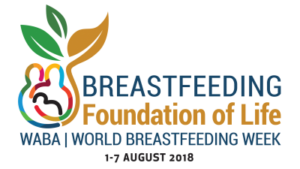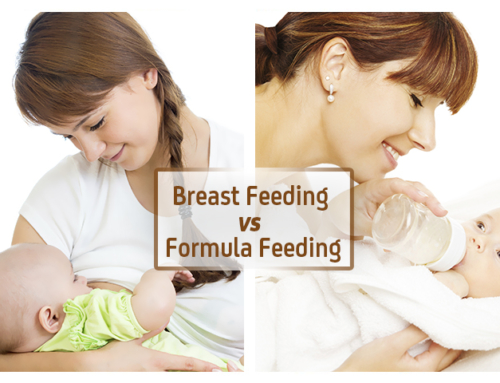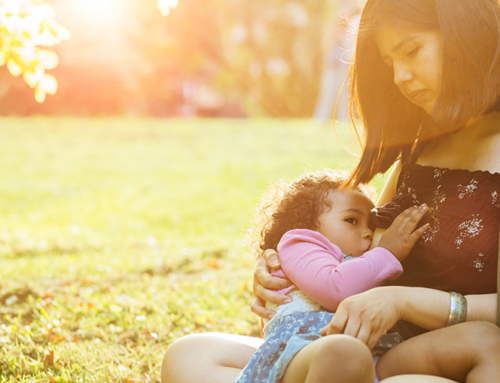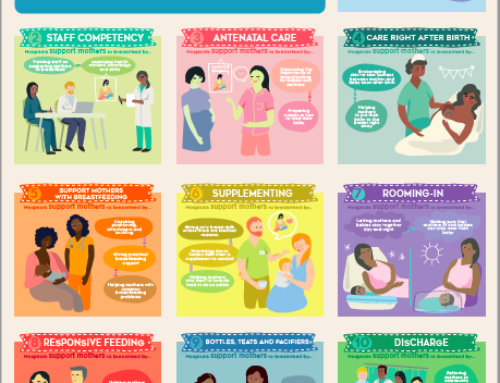 Pardon the lateness, but I admit I was a little busy half way around the world during this year’s World Breastfeeding Week so it wasn’t until after I returned home that I was subject to seeing a particular piece from Huffington Post UK on the idea of changing World Breastfeeding Week to World Infant Feeding Week.
Pardon the lateness, but I admit I was a little busy half way around the world during this year’s World Breastfeeding Week so it wasn’t until after I returned home that I was subject to seeing a particular piece from Huffington Post UK on the idea of changing World Breastfeeding Week to World Infant Feeding Week.
This is the third year in a row that Ms. Leppard has shared this piece and she has, in other pieces, argued that the angry response to it is exactly why it is needed. We don’t need more divisions, weeks that exclude some groups aren’t successful, it shames those who don’t breastfeed… And so on. The scientist and advocate in me wants to this this piece apart piece by piece so we can see exactly why this idea is so ill-informed (something I started to do when sharing on Facebook). The person in me wants to sit down with Ms. Leppard, hand her a glass of wine, and ask her about her pain.
Because there is pain and probably a lot of it.
Whenever we take something so personal and try to politicize it, it’s almost always due to pain. Ms. Leppard speaks to some of it in her article and this pain and associated feelings of grief that have come from her own experiences being unable to breastfeed. This pain is something that has been echoed by millions of women and is one possible reason into why some women struggle more with post-partum depression. The loss of something you wanted to do when you are already emotional and struggling to identify yourself in your new role can just feed fuel to the idea that you won’t be able to define yourself as you’d like in this role. You will forever see yourself as subpar. (This is likely related to the research that has found that although there is an increased incidence of post-partum depression in non-breastfeeding mothers or when a mother stops breastfeeding early
In our grief, we don’t always see things as they are, and so a public cry to change World Breastfeeding Week can come across as irrational and missing the point entirely to those who are looking at it through a different lens. To those who share that same lens, it’s a cry for people to realize they are triggered and hurting still. This should be no surprise given we live in a society that does not support the experience of grief. Instead we try to change the narrative so that what causes us grief isn’t something that we should even be upset about. Or we get angry at those who have succeeded where we did not. Or we try to remove all mention of what it is that causes us pain so that we never have to face it at all. Or some combination of the above.
Through this lens, Ms. Leppard’s piece makes perfect sense. It tries to change the narrative around grief by dismissing the research on breastfeeding as being flawed, biased, or inconsistent (if it’s not so great to begin with, what do you have to be sad about?). It carries a passive anger towards those that succeeded (you aren’t thinking about others, just yourselves and what you’ve overcome, aren’t you?). And primarily, it wants to remove all mention of what has caused pain (bye World Breastfeeding Week).
It’s easy to take the scientist route and just look at this response through the lens of the political or public (again, this was my own first reaction), but it’s much harder to find that inner empathy when someone’s grief turns their advocacy into something that threatens. And threatens she does because her proposal is a way to completely negate the very real needs of breastfeeding mothers around the world. When viewed through that lens, it’s easy to feel the need to just rebut everything (especially when the threat is in a public forum).
The problem is that the first route doesn’t necessarily help. Logic is not going to win this one (and there are massive logic flaws in this article) and those who know this are already on the side of keeping World Breastfeeding Week. For me, this highlights the very real need for us advocates to include grief support in our advocacy. Many already do on an individual level and they are known as life-savers for so many women who wanted to breastfeed and couldn’t. (They are also the likely reason we have many women who couldn’t breastfeed, but try again, and who join in breastfeeding advocacy despite not having been able to achieve it at some point themselves.) But we need more.
I want to put out a few things that I think we need here:
- More research into the type of grief support that works and helps women overcome the loss of breastfeeding.
- Acknowledgment of the real role that unplanned early cessation or lack of breastfeeding has on mother’s mental health and a discussion of this during pregnancy.
- Grief support in-hospital for women who are struggling to breastfeed and feeling overwhelmed by emotions of fear and/or failure.
- Follow-up support in groups, especially breastfeeding groups, for mothers who wanted to breastfeed but were unable to do so. Being welcomed into the fold of breastfeeding mothers can sometimes mean all the difference to a mother, but only after she has been allowed and supported to feel her own grief at what she has lost.
I truly believe the Baby Friendly Initiative should be including this in their guidelines for in-hospital care and I would hope that LLL and other organizations would develop breastfeeding-friendly support groups for mothers who wanted to and couldn’t. (I am sure some individual groups and hospitals are doing this, but I do feel it has to be a part of what is offered at a larger, systemic level.) When we, the advocates of breastfeeding, push this type of support away onto someone else, we lose so much because others often – as we have seen – don’t actually help women grieve, but push the other negatives (those nasty breastfeeding advocates are trying to hurt you yet there’s really no support for breastfeeding as being best so we need to focus on all infant feeding so you don’t feel “shame”). If we want to help, we have to take on that one more thing here too (yes, I know how much there is to be done still just for those mothers who are breastfeeding and we only have so much to give, but I want to propose that this is an area that would help overall even though we don’t have to).
(I want to be clear that by no means do I advocate that this problem of lack of support is caused by breastfeeding advocacy. I don’t believe it even morally needs to be the job of breastfeeding advocates. It is, however, a failure by our society and exists in more realms than breastfeeding, but it is an area that can be taken up by those who advocate for breastfeeding in a way that I believe would be more sensitive and aware than by others.)
Just look at what has actually happened with women who wanted to breastfeed: They are bombarded with message of how breastfeeding isn’t all that great so they really have nothing to be sad about. Not only is this horribly dismissive of a mother’s actual feelings, but it doesn’t actually help. We end up with women who continue to be angry and defensive because their actual grief is just suppressed even more. They are unable to look at something like World Breastfeeding Week – a week that does kind of celebrate those who breastfeed, but whose work is dedicated to removing the barriers to some of the most vulnerable populations in the world where breastfeeding can be the difference between life and death[4] – for what it is, instead seeing it through their own experience.
On an individual level, I ask each and every one of you to sit down and comfort a friend who wanted to breastfeed and couldn’t. Let them rant and rage if needed. It’s helpful to know the stages of grief:

- Shock is sometimes not in this because the realization that many women aren’t going to breastfeed comes slowly.
- Denial may be seen by mothers trying every last thing to accomplish breastfeeding, but this too may not be present, depending on how much agency a woman feels she has (a sad reflection on how much agency we take away from new mothers that not all women go through denial, but just resign themselves to what someone with a white coat tells them).
- Anger certainly comes out and when they are supported by those who are also angry, that anger turns not against the systems and society that failed them, but the people who are actually fighting to try and avoid the same problems happening to someone else.
- Bargaining can be seen in the “fed is best” movement. It’s not that big a loss if everything is equal, right? The fight for World Infant Feeding Week can be seen as a type of bargaining. The problem is that it just doesn’t hold.
- As mentioned above, we know there is an increased risk of Depression when women who wanted to breastfeed, couldn’t. This is where we can offer the most support to fellow moms. Let them be sad. It’s as hard and as simple as that. You can’t will away their pain and you can’t rationalize it away, it simply has to be felt and supported. Hug them, hold them, sit with them, and just let them know that it’s okay to feel this way, but that it won’t last forever.
- In the Testing stage, you actually have the chance to help them find solutions. Maybe it’s feeding with a supplementary nursing system to mimic breastfeeding. Maybe it’s feeding skin-to-skin. Maybe it’s nothing extra at all. But for each mother, having someone to talk about their ideas with can help and it starts with knowing exactly what it was that was important about breastfeeding to them. Depending on the answer to that, you can help them test different solutions.
- The stage that so few women have actually reached because they are trapped between Anger and Depression. We have to change that.
So no, World Infant Feeding Week should not be a thing. But more than that, Ms. Leppard, you should never have had to feel that it should be.
______________________________
[1] Castro Dias C, Figueiredo B. Breastfeeding and depression: a systematic review of the literature. Journal of Affective Disorders 2015; 171: 142-54. [2] Ystrom E. Breastfeeding cessation and symptoms of anxiety and depression: a longitudinal cohort study. BMC Pregnancy and Childbirth 2012; 12: 36. [3] Borra C, Iacovou M, Sevilla A. New evidence on breastfeeding and postpartum depression: the importance of understanding women’s intentions. Maternal and Child Health Journal 2015; 19: 897-907. [4] See this year’s action folder here to see how it focuses on breastfeeding in times of crisis and poverty: http://worldbreastfeedingweek.org





it’s beautiful that you were able to see past the unfortunately harmful and misguided message and feel—and empathise with—the hurt human behind it. holding space for grieving people is undoubtedly more productive than just pointing out the flaws in their logic alone. and kinder, which is no small thing.
i’ve known a fair number of women who couldn’t breastfeed successfully, or who said they wanted to, and were told they couldn’t. in every case i’ve known personally, they were badly educated about breastfeeding. in every case, they were given misinformation and bad advice by doctors. and in every case, they were also ill-advised by family and not supported in desire to or attempts to breastfeed their babies. they were told as well that it didn’t matter. in nearly 20 years of being a breastfeeding advocate, i have encountered only a single woman who actually had a medical condition that prevented her from producing breastmilk. i’ve known a few who couldn’t nurse due to medications they took, and i have known of one case where a baby was born with a very rare condition (galactosemia) that made her unable to tolerate her own mother’s milk, and who very sadly died after a few days in which they tried various formulas to no avail. but every other case i’ve known of a woman who wanted to nurse and ended up not nursing or switching to formula early on resulted from misinformation and lack of support. and every one of these women have constructed narratives that deny or minimise the grief they felt at this. some of them are positively hostile to any mention of breastfeeding, and find discussion of it offensive.
so i think you are spot-on in your assessment of ms. leppard’s repeated animosity towards what ought to be perceived as a positive—or at least neutral—thing such as “world breastfeeding week”…all of the women i mentioned above would have benefited tremendously not only from better education and support for breastfeeding, but also from an available support system for their grief at not being able to do it. i plan to develop some way of addressing this, and to include it in future postpartum doula information.perhaps i shall reach out to the local LLL group leader and see if there is anything she could offer to people who feel this grief.
I am so happy to hear you have the platform and will to take this on. Thank you! It is so important that women get this on the ground from those who they are interacting with 🙂
I think this is a really good article although I disagree and do believe that lactivists should morally include in their advocacy support for formula feeding families. Not just ones who formula feed by circumstance but also families who do so out of choice.
In my perspective, advocacy isn’t advocacy if it isn’t intersectional. If your feminism isn’t also anti-transphobic, then it isn’t feminism at all. Likewise, if lactivism doesn’t hold a safe space for indivudals to disscus and recieve support for grief surronding their infant feeding method – whether by choice or not, and whether their grief is because of judgement from society or personal feelings of inadequacy- then that lactivism is sh*t.
I understand (though disagree) where Holly is coming from when she says she wants a ‘world infant feeding week’. In my opinion a better idea would be ‘infant feeding experience awareness’ which would easily fall under the umbrella of a wider ‘post natal mental health week’ (I hope there’s one of those!)
Infant feeding grief might not just be the loss of a breastfeeding relationship with the child, but also the loss of friendships (because lets be real, some breastfeeders are extremely cliquey) and the grief that comes with feeling judged and condemned by society. Likewise, parents who formula feed by choice might have the same experiences.
Likewise formula feeding groups also have a responsibility to listen to and include in their own spaces support for breastfeeders who have their own unique experiences as well, like being judged by peers for breastfeeding for ‘too long’, or breastfeeding in public (because formula feeders can be equally as cliquey)
If your goal as a lactivist is to increase rates of breastfeeding, then a space is needed for formula feeding mothers. If lactivists acknolwdge the judgement and grief surronding formula feeding, then individuals may be more likely to consider breastfeeding future children (maybe even if they formula feed through choice) or be more inclined to support their grandchildren being breastfed. Just from what I can see in the wider debate of world breastfeeding week of ‘who has it worse, us or them’ is in my opinion, doing no favours for anyone.
(Apologies for any errors, English is not my first or usual language)
I have to agree with Dienne. My wife had an incredibly tough time breastfeeding and it made her feel a level of shame she has never experienced. All the information out there points to such an easy process if “done right and that”s not an honest message at all and I think really does a disservice. The honest message should be, “yeah there are a lot of benefits to breastfeeding so we encourage it, but womenit is going to hurt like hell for the first few weeks. Hopefully it gets better, but it may not. If it doesn”t, use formula to help and don”t be ashamed. With the women I know in my life, messages like this have done so much more harm than good. As the man who was there helping her get through all of the physical and emotional issues I couldn”t help but think what a terrible racket it is for so many women to just be blindsided by how hard breastfeeding actually is. Give women the truth so they can decide what is best for them and how to deal with the real issues and stop with all the flowery “everything is great and don”t be stressed speeches.
That is definitely not a message that should be sent. In many circles, like EP, women talk about their struggles and how they managed to overcome them. We have ignored in our society that breastfeeding is a learned skill for moms (instinctual for babies) and that we need others around to show us how to do it. If we don’t grow up seeing it everywhere, how can we know what is normal and what isn’t? Or what the typical remedies are when it doesn’t go easy. I will say the pain you suggest is not normal – there’s some discomfort, but not severe pain – and may have reflected an undiagnosed tie or poor latch. Sadly the support structures are not in place to help all women – something World Breastfeeding Week works to help establish.
It is great to see the grief of breastfeeding not working out being acknowledged. I have supported both women to breastfeed as a LLL leader and women who are grieving the loss of a much hoped for breastfeeding relationship with their baby ( especially on my face book page Supportive Community when breastfeeding doesn’t work out) The issues are complex and I would add that grief can also happen when breastfeeding works out but their was unexpected struggles to get there. This type of grief needs to be acknowledged and supported also. In regard to world breastfeeding week I discovered early on that this can be a painful week for women who are grieving the loss of breastfeeding and on my face book page I give extra support during this week. I have asked in the past if world breastfeeding week could acknowledge the grief of women that have had breastfeeding not work out by maybe lighting a candle for this loss or acknowledging the pain of this during celebrations of breastfeeding. The fact that their is grief is in my opinion just the other side of the coin to how important breastfeeding is for women and needs to be acknowledged also to make true progress on helping to work towards helping to address the issues that get in the way of women achieving their breastfeeding goals.